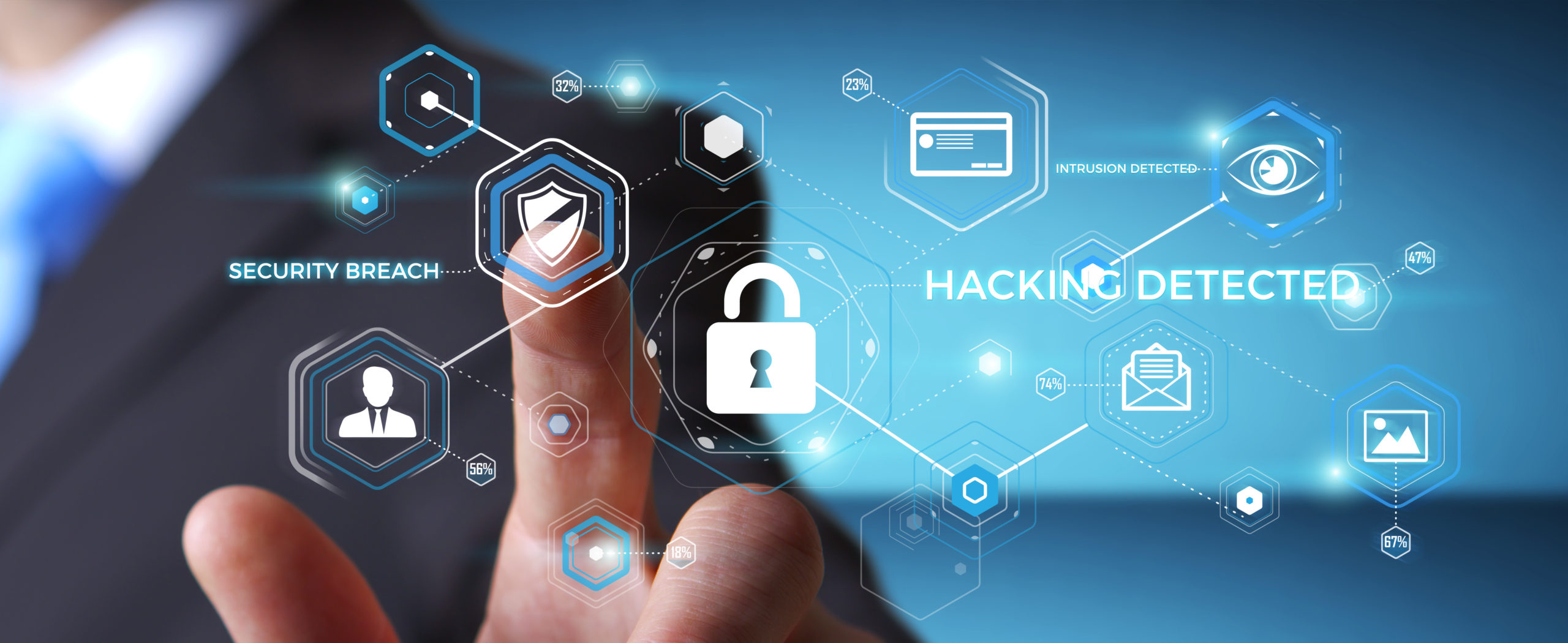The internet is a wild place. On the one hand, that’s what makes it so wonderful. In theory, anyone can host a server, put up a website, and potentially millions of people from anywhere on the planet can access that website and take a look at it.
The internet spawned from DARPA’s research into sharing information as quickly as possible (which would be very useful for, say, a military where timing is vital to take advantage of enemy weaknesses and to shore up gaps in one’s own defense). Then, the project evolved into a method for universities to share research with one another- which again would be of immense use to both universities and the military.
Eventually, the system expanded where anyone with a computer could have access to (publically hosted) university research. Then companies began hosting their own services, and then private citizens, and it all began to spiral from there.
On the other hand, there were (and still are) concerns about such a chaotic environment simply being open and available to everyone. I’m not just talking about online casino Australia no deposit bonuses either. Illegal activities being carried out over the internet, such as the selling of drugs, bullying, and other activities attributed to the “dark web”, were the initial worry. Then, of course, there was porn. Porn has been a sticking point for many people (I hesitate to use the term “Boomers”) because the internet provides access to it quicker and easier than ever before.
The fact that porn is available on the internet is hardly unique; let’s be clear. With almost every new piece of technology, the porn industry is usually the first pioneer. This is true for film cameras, television, VCR, telephones- and we can see it happen in real time with the invention of newer technologies, such as VR (do you know how fast Porn Hub added 360 degree video content after the Oculus first released? It was basically overnight. How do I know that? Er, research. Extensive, thorough, research.).
The point is, porn specifically has been the justification for implementing more stringent regulations onto big tech and the internet since its inception. However, since most politicians then (and now) don’t understand how the internet works, the best they could come up with was COPPA, “The Children’s Online Privacy Protection Rule”.
Websites basically have to agree that if they are directing content at children, then they have to fulfill certain requirements of what that content is allowed to be. The resulted in all websites putting a single checkbox on the registration form that asks, “Will you please pinky swear that you are more than 13 years old?”
Well, I’m sure that worked wonderfully.
Obviously, this is a very easy system to beat. For as long as I’ve been alive, politicians, Karens, and other nosey gits have been lobbying for something with more teeth. Somewhere in eastern Europe (Russia, I think?), a country tried to implement a stricter version of COPPA… and the porn sites responded by making an HTML overlay that technically blocked the site but is extremely easy to avoid if you’ve ever played around with the “inspect tool” in your browser. Or know what a VPN is.
This battle comes and goes in cycles, it seems. Various European countries have tried implementing laws that would require people to hand over their civil ID in order to look at adult content (“Oi, have you gawt a loicense for that wank?”). Such laws would do away with internet anonymity and have been strongly opposed for that reason.
Well, Britain’s back at it again, and this time they have completely given up any pretense that they have ever cared about your free speech or right to privacy. Let’s talk about Britain’s “Online Safety Bill”.
It was Murder, She Wrote
For those that don’t follow British politics as much as a random internet weirdo like me does, let me fill you in on the context. The origins of this new Bill actually stem from the murder of British MP Sir David Amess. Sir David Amess was stabbed to death on Leigh-on-Sea, on October 15th, 2021, by Ali Harbi Ali. Sir David Amess was holding a Constituency Surgery (which is what we Americans call a “Town Hall”) at a church when Ali Harbi emerged from the crowd and stabbed him multiple times.
First responders arrived quickly, and Ali Harbi was apprehended soon after in Kentish Town. Sir David Amess died from his injuries at the scene. Ali Harbi’s motivations turned out to be, surprise surprise, radical Islam. He considered himself a member of the Islamic State (ISIS), so I think his motivations are fairly obvious. He apparently had been planning an attack for at least two years.
What does any of this have to do with online safety, you might be wondering? Well, let me fill you in. You see, British politicians have no balls. They are terrified of confronting the real and present danger of Islamism and will do almost anything to ignore it. They have buried their heads so far into the sand, their hair can be seen in China. Instead of cracking down on the Islamic grooming gangs, which are responsible for tens of thousands of rapes of young girls, the British police prefer spending their time painting rainbows onto their cars.
This situation is no different. Instead of confronting the actual problem, the conversation has been forcefully shoved into one about “radicalization”. You see, Ali was radicalized online. He watched YouTube videos of Islamic preachers calling for Muslims to join the Jihad against the west.
Parliaments solution? BAN INTERNET ANONYMITY!
The Online Safety Bill
Originally, the Bill was called “David’s Law” in honor of Sir David Amess. For whatever reason, however, they eventually changed it to the far more innocent, yet still vaguely ominous-sounding, “Online Safety Bill”. It reminds me of the Committee of Public Safety- the ironically named ruling body during the French Revolution which was responsible for deciding who got to go to the guillotine (until the maniac who ran the whole thing, Robespierre, got sent to the guillotine himself.)
What I’m trying to say is that even the name of this Bill reeks of propaganda, like how China calls itself “The People’s Republic of China” or how North Korea calls itself “The Democratic People’s Republic of North Korea”.
But let’s talk specifics: What does this Bill actually do? Among its 190+ pages, it recommends that Ofcom (the body in charge of overseeing how tech giants are regulated) has (from the BBC):
- An explicit duty for all pornography sites to make sure children cannot access them.
- Scams and fraud – such as fake adverts designed to trick users – should be covered.
- The Bill should cover not just content but “the potentially harmful impact of algorithms.”
- It should also be expanded to cover paid-for advertising, such as those involving scams.
- Promoting or “stirring up” violence against women or based on gender or disability.
- Knowingly distributing seriously harmful misinformation.
- Content “promoting self-harm” should be made illegal.
- “Cyber-flashing” – the sending of unwanted naked images – should be illegal.
- So should deliberately sending flashing images to those with epilepsy, with the goal of causing a seizure.
Now, I’m not completely against the idea of regulating big tech. These tech companies have far more power than most countries do. However, this Bill doesn’t tackle any of that. Instead, it promises fines and even prison sentences if the tech companies don’t censor even harder.
It doesn’t explicitly say that, of course. But just have a read through of some of those recommendations again. For instance, “the bill should cover the potentially harmful impact of algorithms“. What does that even mean? An algorithm is a process of computations and logic that does a thing. There are an infinite number of algorithms. Does it mean the sort of algorithms that Facebook, Twitter, and Google uses to decide what content to push to the front page? Does it mean search algorithms? Who knows.
Also, that bit about making sure that children can’t access porn is the same cycle of nonsense that’s been circling politics for twenty years. Everyone should just hand over their internet anonymity so that parents who are too tech illiterate to properly regulate the content their children have access to can be happy that their kiddies won’t see any tiddies.
In addition, while I am not advocating for the promotion of violence against women, or anyone really, who gets to decide what violence is? In this day and age, men are told that looking at a woman wrong is sexual harassment and that having the wrong opinion is, like, uh, literally violence. Where is the line drawn? In Britain, Hate Speech laws already exist that infringe on the citizens’ right to free speech, and people are very much being arrested and / or fined for jokes and tweets.
The idea that content promoting self harm should be made illegal is an interesting one. I’m against suicide in nearly every form but methinks that such a law would be used to try and ban heavy metal music and violent video games. Again.
Then there are some nuggets of good ideas in here. Deliberately sending flashing images that could cause seizures should be a crime since it can cause real, physical harm.
While the idea of banning “cyber-flashing” is a good idea, I don’t know how it could be implemented beyond a simple “report” button (which already exists). Unless the big tech companies use machine-learning algorithms to detect dick-pics… but then how does an algorithm detect unwanted dick-pics versus a couple just sexting each other?
The bottom line is that this Bill in the works will do far more harm than good. Politicians have very little understanding of how the internet works, and incentivizing more censorship is just a plain, awful idea.
Oh no, some MPs get their fee-fees hurt because of mean words said online? Well, boo hoo. Turn off the damn cell phone, go for a long walk, and clear your head. Preferably by dunking it in that large body of water at the end of that short pier, I’d like you to walk down.
















